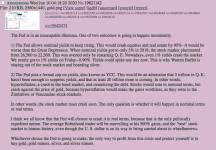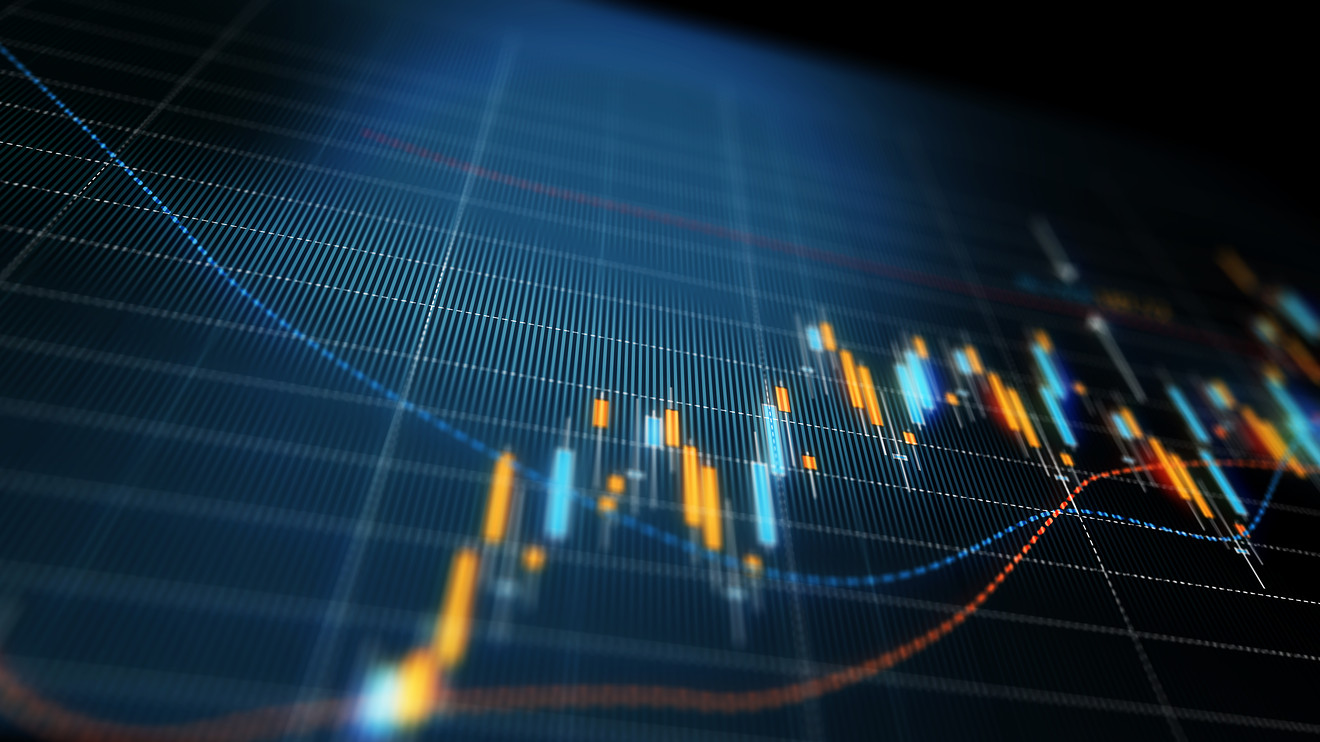Expound please. There is already a massive transfer of wealth happening from the 99% to the 1% due to inflation. The small percentage that have real assets see their wealth appreciating every day while those that have not are paying the price.
I don't agree with the 90% drop in asset prices mentioned in the original image I posted, but if the fed raises rates to slow inflation asset prices will tumble. If we even got near a 3% yield on 10 year treasuries, equities will get wrecked.
So either the inflation is going to continue on its tear, or the fed steps in to slow it down and equities take a tumble. Personally, I feel they are going to have to get rates up, but I have no idea how it will play out. I am hedged for either situation
First off. 10 yr yields in 6/3/19 were 2.07, 6/1/202 were 0.66, and 6/1/21 were 1.62.
Yield curve is fairly strong right now and you can argue inflation is normalizing from the 2020 inversion/ pandemic.
Furthermore, there aren't cap or no cap as the options. If they even tried to cap the rates by effectively taking money out of circulation, they could trigger a deflationary pressure where demand would rush in for the dollar. The dollar is the world's reserve as much as it's a stock in the US economy. Prices may fall in that event, but that's only because money is scarce and harder to come by. Fun fact, that's what triggered the great depression. That is not happening and that guy is a retard for suggesting it. Granted they could inflate the currency back up and introduce inflation, but they can't introduce inflation as it is now because of the instability across the rest of the planet.
About the 1% taking 99%. That's not true. You have to almost separate into two completely different markets loosely linked, equites markets and then the general day to day consumer market. Fed is printing cash, companies are taking that cash and investing, buying, and selling equities, private and public. You've got medium size PE firms with billions of dollars they are sitting on and can move massive amounts and cash between themselves and other firms really easily now. That has a lot to do with the cheapness of money and it's impact on crazy ebitda multipliers. Then you have the consumer market, the day to day buying shit market, that's not being effected because anytime new money is printed, it's getting sucked up into leverage and investment. If there is a bubble right now, it's the M&A's, stock market, and arbitrage.
For that excess cash to affect the price level, it somehow has to get out of this ridiculous overvaluations, and into general consumers' hands. That won't happen because the consumers don't have enough credit on such a scale to be able to command those levels of cash.
Lastly, the hyper inflation scares are just snake oil salesmen trying to push gold. It's a scam. Uncontrollable hyper inflation, or even the stuff we saw in the 70's, is a very specific deal. Zimbabwe had it because their central bank was owned by one guy who destroyed their economy and exhausted any economic power Zimbabwe once had. Plus it's a resource extraction based economy that was not advanced. It didn't have any real assets to it beyond taking a bunch of peasants and forcing them to dig shit out of the ground. And labor assets have a diminishing return. Weimar Germany had a similar problem, their economic base was all but destroyed post WW1. While the factories weren't blown up, the men to work in them were killed and the reparations forced post war led to a capital shortage as there was no available wealth to reinvest, innovate, and fix the problem. IIRC the US actually set up a loan program and paid the German war debt off with a check, and let the Germans refinance and indebted only to us. The German economy stabilized, but then the great depression hit. At the end of the day, the lack of economic resources backing the currency, just like Zimbabwe, led to hyperinflation.
The US economy on the flipside is unfathomably massive. If you did a 20 year valuation on just consumer spending, at a minimum the US is valued at least at 300 trillion dollars. And that doesn't account for growth. Debt service payments are about 2% of GDP. That would be akin to a guy borrowing 65k on a 60k salary, and paying a 100 bucks a month, principal and interest. We aren't vulnerable like hyperinflation happens.
Hyperinflation would happen if we somehow lost a major war, had our economic engine destroyed, and then were saddled with many times the debt we have now. Yea if output was down to 10 trillion, millions dead, and we had 70+ trillion in debt, we'd be fucked and hyperinflation would happen. We'd lose our status as the world's reserve currency. In reality, that's virtually impossible.





